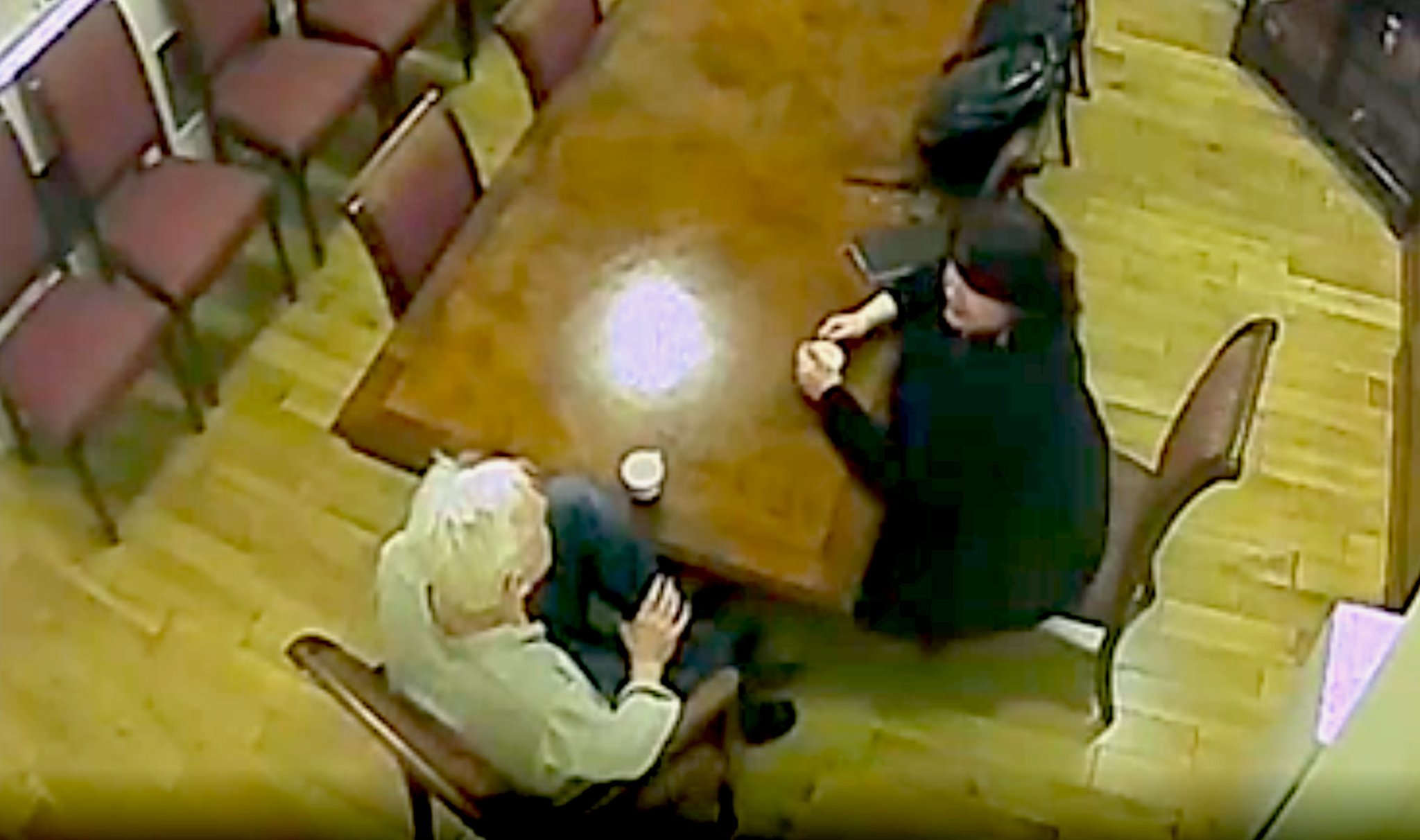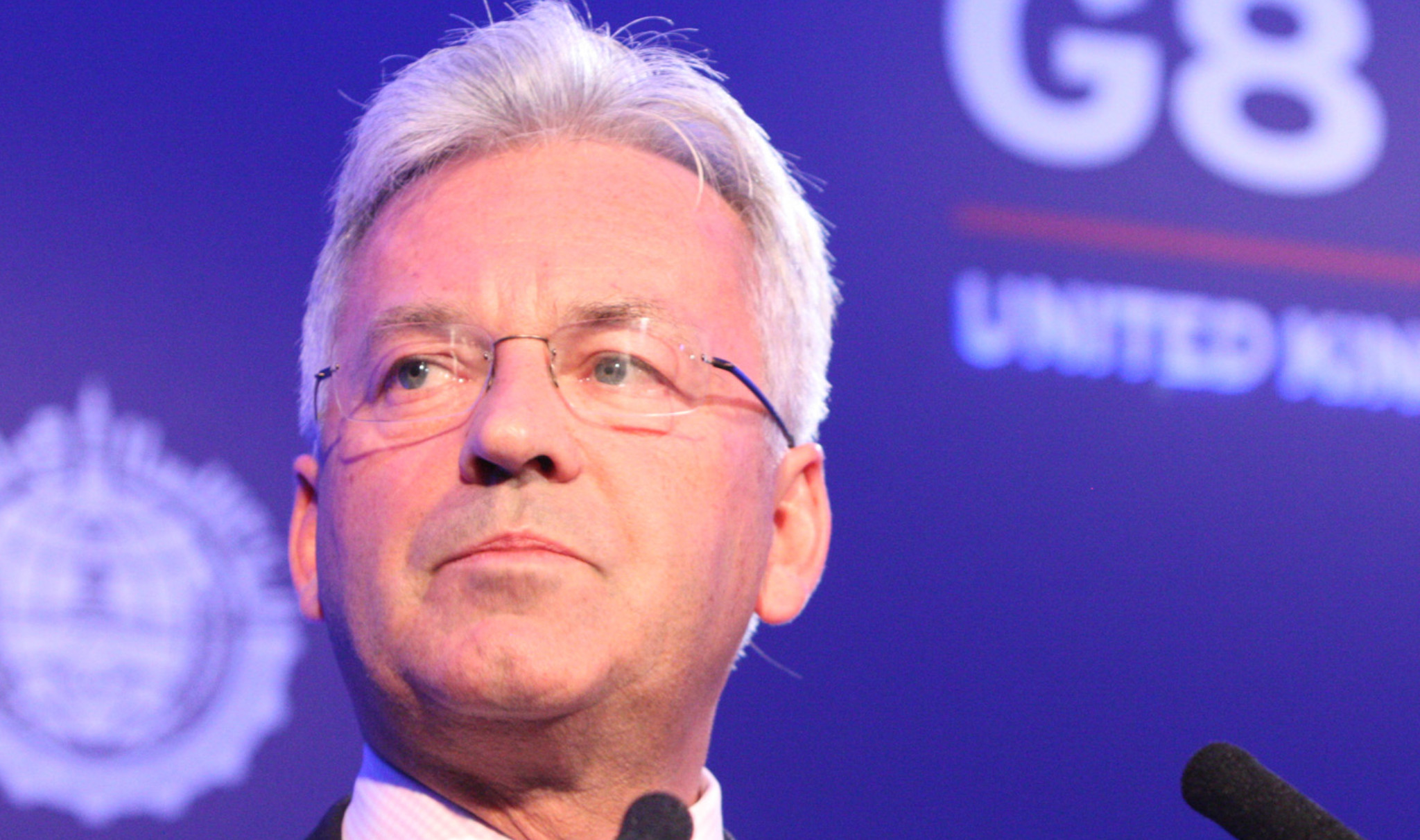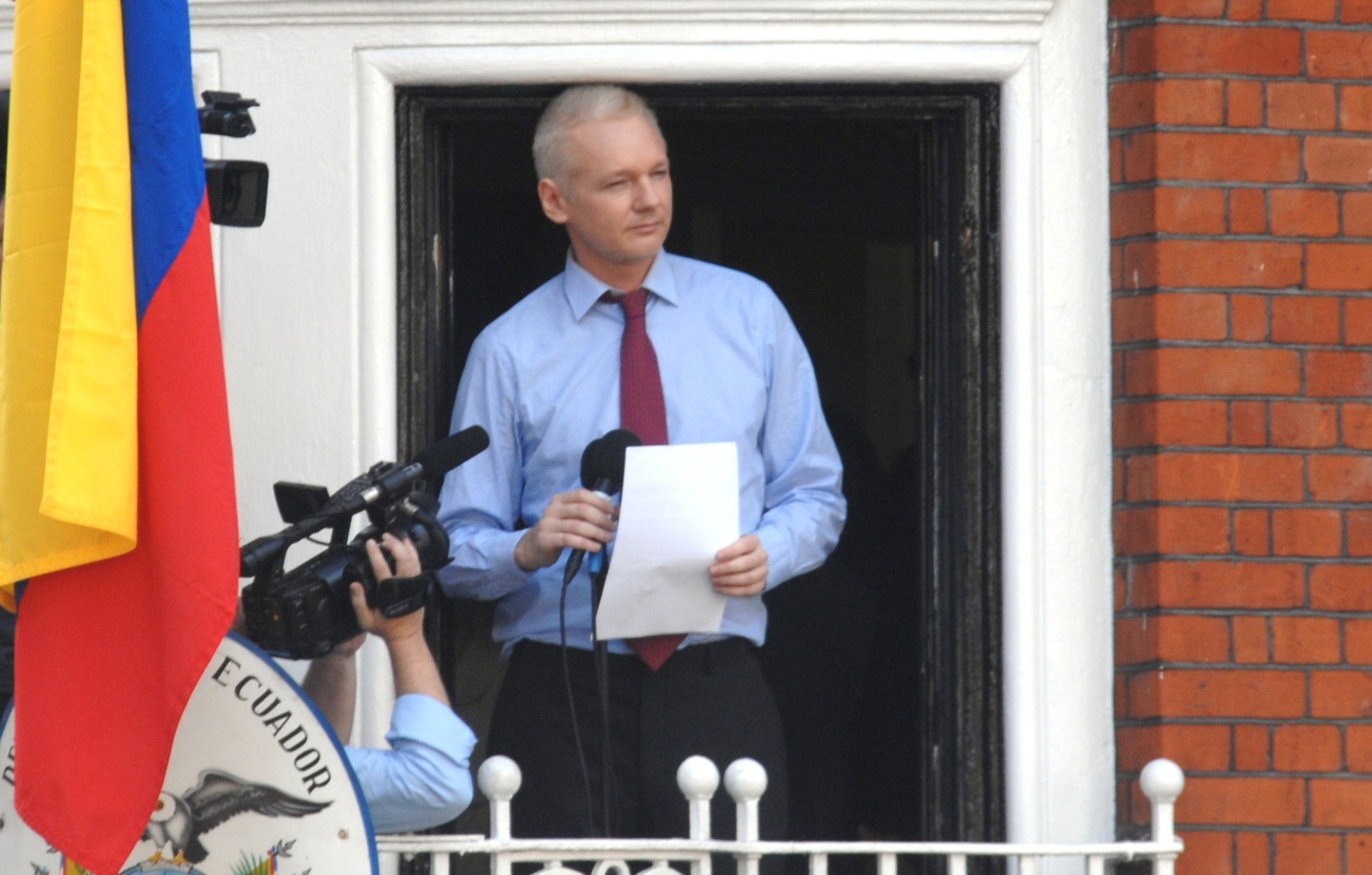When the WikiLeaks founder Julian Assange was dragged out of Ecuador’s London embassy in handcuffs three years ago, he was clutching a book given to him by the Italian investigative journalist Stefania Maurizi.
Gore Vidal’s History of the National Security State argues that America’s ‘military-industrial-security complex’ exploits fear of the enemy in order to generate vast state subsidies. The Australian reinforced the message by shouting: “UK must resist”.
Maurizi had brought the volume to help the fugitive Assange keep his mind active during the six years and 10 months he spent inside his cramped diplomatic sanctuary. It was one of many visits she made.
A journalist with a Maths degree, she has written about cryptography. Her first contact with WikiLeaks was in 2009 when she received a call in the middle of the night asking for help verifying and interpreting a leaked audio file which hinted at Italian state-mafia deals during a rubbish collection crisis.
The following year Maurizi met Assange in Berlin. She had gone to talk to WikiLeaks about their Afghan War logs which contained secret files detailing Italian military participation in the war. Assange had flown in from Stockholm where Swedish police had just opened an investigation into allegations against him of rape and sexual molestation; his luggage had gone missing when he arrived in Germany.
Her book, Secret Power, is a passionate and well-paced defence of WikiLeaks and Assange published as the 51-year-old continues to resist extradition to the United States. If convicted of offences under the US Espionage Act, he faces prison sentences of up to 175 years.
This is not the first book about WikiLeaks but it is a comprehensive account – enlivened with eyewitness reporting – which follows the twists and turns of Assange’s life, WikiLeaks’ revelations, media falling-outs, the Swedish criminal investigation, court hearings, surveillance of his embassy bolt-hole, alleged plots to kill him and detention in Belmarsh high security prison.
CIA rendition
The narrative is bolstered by historical asides on such diverse matters as the first publicly available email encryption programmes, Assange’s conviction in 1996 for hacking (he was fined AUS$2,100) and the Guantanamo Bay detainee held because he lost a village lottery. The whistleblowers Chelsea Manning and Edward Snowden inevitably feature prominently.
One well-chosen example is the February 2003 rendition of the imam Abu Omar. Snatched off a Milan street in daylight, he was first taken to an American air base in Aviano, near Venice, then removed to Egypt where he was subjected to torture involving, he later said, sexual assaults and electric shocks.
Despite 26 US citizens, many of them CIA agents, eventually being convicted for their part in the abduction, none have ever been returned to Italy to serve any of their jail sentences. Some were even pardoned by Italian presidents.
That pattern of immunity from serious punishment for senior officials has been all too frequently repeated. When the US General David Petraeus gave his lover and biographer eight notebooks full of classified material from his Afghan campaigns, he reached a plea bargain resulting only in two years’ probation and a $40,000 fine.
Demonisation
By contrast the pursuit of Assange has involved “demonisation” of the Australian, according to Maurizi who catalogues repeated attempts to destroy WikiLeaks that have allegedly gone as far as plans to kidnap and murder its members.
Accusations that WikiLeaks has put lives at risk by publishing leaked military and diplomatic documents have, she suggests, been a way of distracting the public from revelations about killings carried out by US troops.
Maurizi, who works for the Italian newspaper Il Fatto Quotidiano, has for the past seven years also been waging a solo freedom of information (FOI) battle seeking to establish why the sexual assault allegations against Assange were stalled at a preliminary stage for so long.
She submitted FOI requests in Sweden, Britain, the USA and Australia requesting files on the legal investigation and correspondence between prosecutors in the four countries.
Sweden – the first country, in 1766, to pass freedom of information legislation – was the most responsive. The documents she obtained showed that the Crown Prosecution Service (CPS) in London had advised against questioning Assange in the UK, suggesting it would be better to interview him once he was returned to Stockholm. With Assange resisting extradition that effectively created years of legal paralysis.
Maurizi had to appeal to an information tribunal and contribute to costs out of her own pocket in order to extract relevant files from the CPS. Many, it turned out, were heavily redacted; other key exchanges between London and Stockholm had been deleted.
The tribunal eventually rejected her appeal for more documents but, significantly, did describe WikiLeaks as a media organisation – a journalistic status that US prosecutors refuse to acknowledge. The Swedish investigation was only finally dropped in November 2019.
Prosecutors said that, although the complainant’s evidence was credible, after nearly a decade the witnesses’ memories had faded. Assange always denied the allegations against him.
The blame for unedited documents being inadvertently released online in 2011, Maurizi maintains, lies with others. Her experience of WikiLeaks, she says, was that they checked and authenticated documents before publication. And it was a WikiLeaks editor, Sarah Harrison, she points out, who rescued Edward Snowden from Hong Kong and the threat of US prosecution.
This book provides fresh insights into a ferociously complex and controversial saga. After more than three years in Belmarsh prison, Assange has lodged an appeal against the decision approving his removal made by the former Home Secretary Priti Patel. The legal and political fight continues.
***
Secret Power: WikiLeaks and its Enemies is published by Pluto Press.




